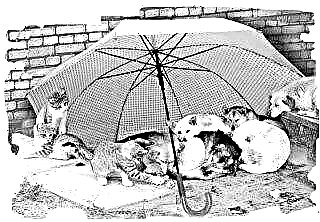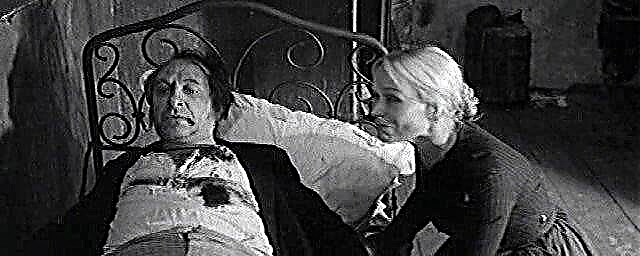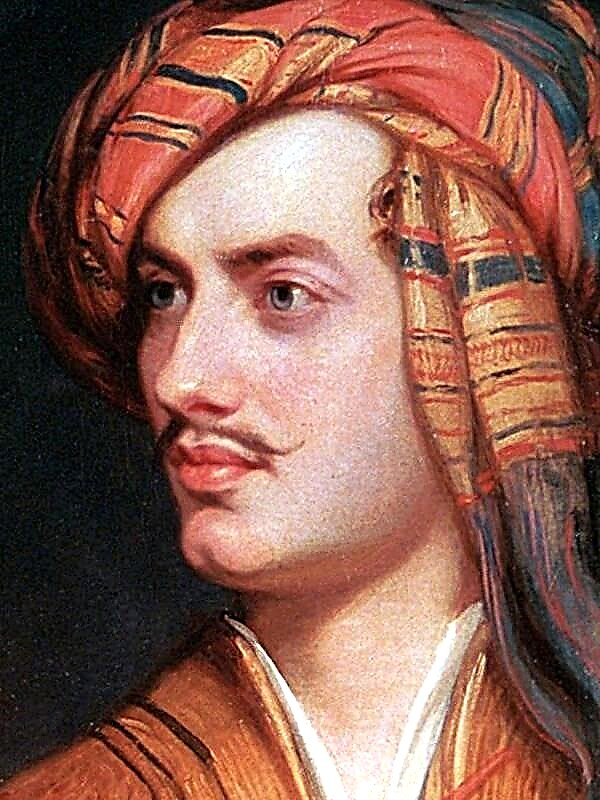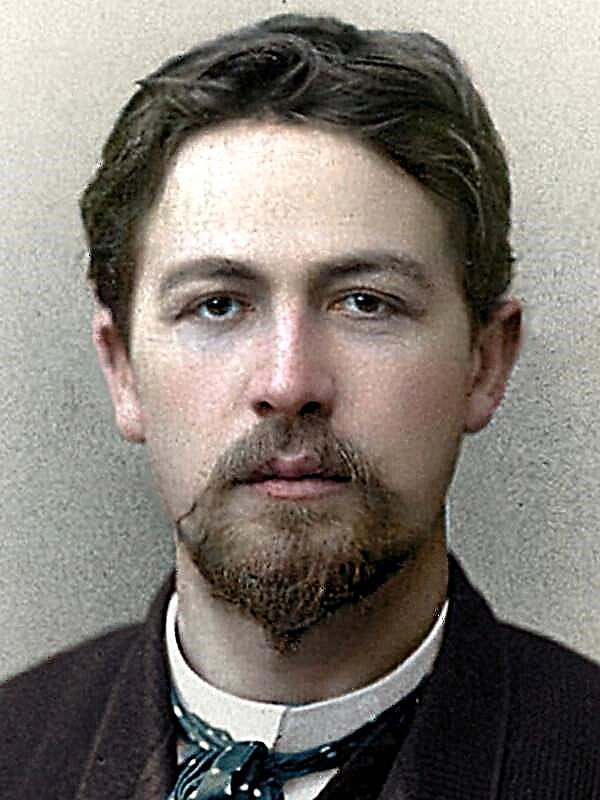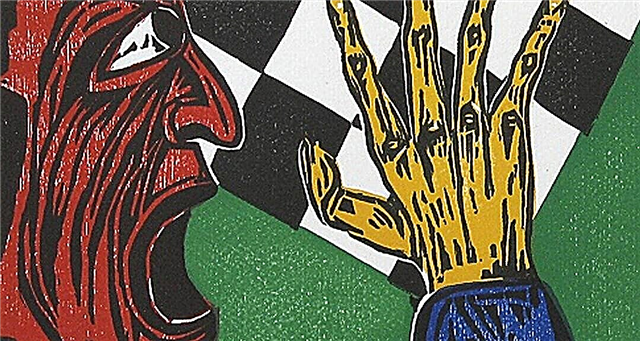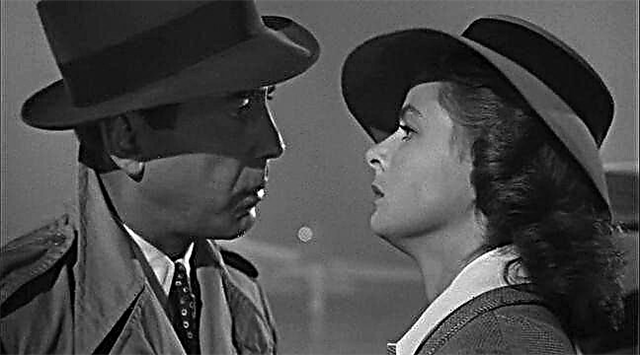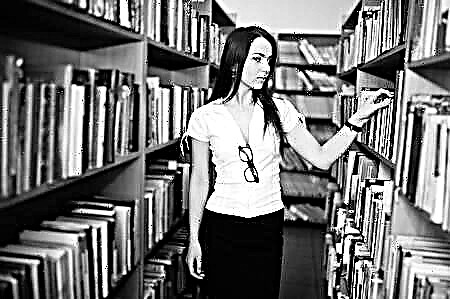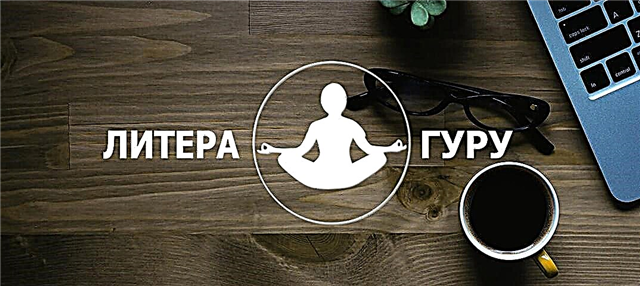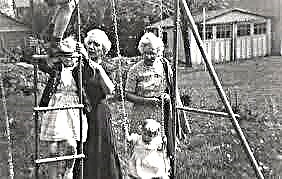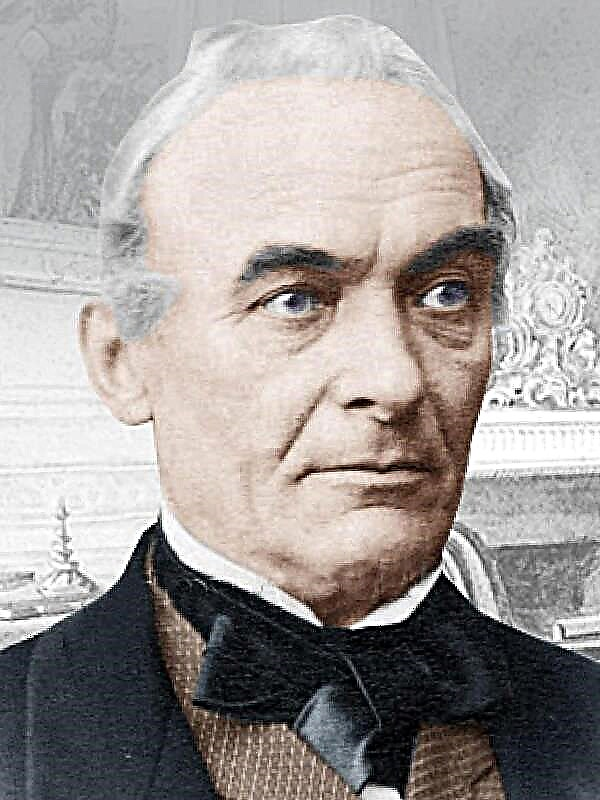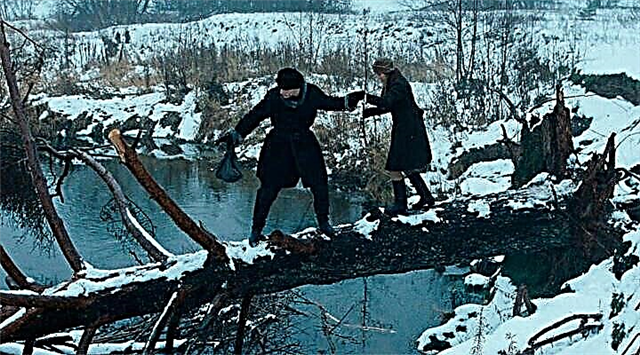The beginning of the XX century. Tender friendship connects two classmates - Jacques Thibault and Daniel de Fontanen. The discovery by one of the teachers of correspondence between the boys leads to tragedy. Offended in his best feelings by his school mentors, who grossly mastered his cherished “gray notebook” and vilely interpreted his friendship with Daniel, Jacques, together with a friend, decides to run away from home. In Marseille, they vainly try to board the ship, then decide to get to Toulon on foot, but they are detained and sent home. Daniel's departure shocked his little sister Jenny, and she is seriously ill. Jerome de Fontanen, father of Daniel and Jenny, left the family and appears there very rarely. Madame de Fontanen, a smart woman, full of nobility and selflessness, is forced to constantly lie to children, explaining the absence of her father. Zhenny's recovery and Daniel's return brought happiness back to the house.
The situation is different in the Thibault family. Jacques hates and fears his father - an old despot, selfish and cruel. A father treats his youngest son as a criminal. The successes of the eldest son of Antoine - a medical student - flatter his ambition. He decides to send Jacques to Krui, to the penal colony for boys he founded. Antoine is outraged by the cruelty of his father, but he fails to persuade him to cancel his decision.
It takes several months. Antoine is concerned about the fate of Jacques. Unbeknownst to his father, he goes to Krui and conducts an investigation in a penal colony. With external prosperity, everything that he sees there, and first of all Jacques himself, causes in him an unclear sense of anxiety. This rebel has become too educated, obedient, indifferent. During the walk, Antoine tries to gain the confidence of his younger brother, and although Jacques is silent at first, but later, sobbing, he tells everything - about complete loneliness, about constant surveillance, about absolute idleness, which makes him dull and degrades. He does not complain about anything and does not blame anyone. But Antoine begins to realize that the unfortunate child lives in constant fear. Now, Jacques does not even want to run away, let alone return home: here he is at least free from his family. The only thing he wants is to be left in that state of indifference into which he has fallen. Returning to Paris, Antoine vigorously explained with his father, demanding the abolition of punishment. Mr. Thibaut remains inexorable. Abbot Vecar, the confessor of the elder Thibault, seeks the liberation of Jacques only by threatening the old man with the torments of hell.
Jacques settles with his older brother, who has already received a doctor’s diploma, in a small apartment on the ground floor of his father’s house. He renews his relationship with Daniel. Antoine, believing that the ban on friendship imposed by their father, is unfair and ridiculous, he himself accompanies him to the Fontenin. Jenny Jacques does not like - unconditionally and at first glance. She cannot forgive him the evil that he did to them. Jealous of her brother, she almost rejoices that Jacques is so unattractive.
A few more months pass. Jacques enters Ecol Normal. Daniel is engaged in painting, edits an art magazine and enjoys the joys of life.
Antoine is called to the bed of a girl crushed by a van. Acting quickly and decisively, he operates it at home, on the dining table. The merciless struggle that he wages with death for this child is universal admiration. Neighbor Rachelle, who helped him during the operation, becomes his mistress. Thanks to her, Antoine is freed from internal constraint, becomes himself.
At the cottage, in Maison Laffite, Jenny gradually, almost against her will, changes her mind about Jacques. She sees how Jacques kisses her shadow, thereby confessing her love. Jenny is confused, she can not figure out her feelings, denies the love of Jacques.
Rachelle leaves Antoine and leaves for Africa, to her former lover Hirsch, a vicious, dangerous man who has mystical power over her.
It takes several years. Antoine is a well-known successful physician. He has a great practice - his reception day is filled to capacity.
Antoine visits his sick father. From the very beginning of the disease, he has no doubt about its death. He is attracted to himself by a pupil of his father, Zhiz, whom he and Jacques are accustomed to consider his sister. Antoine tries to communicate with her, but she evades the conversation. Zhiz loves Jacques. After his disappearance three years ago, she alone did not believe in his death. Antoine thinks a lot about his profession, about life and death, about the meaning of life. However, he does not deny himself the joys and pleasures of life.
Mr. Thibault suspects the truth, but, reassured by Antoine, plays the scene of an instructive death. Antoine receives a letter addressed to his younger brother. The fact that Jacques is alive does not surprise Antoine too much. He wants to find him and bring him to his dying father. Antoine reads the short story "Sister", written by Jacques and published in a Swiss magazine, attacks the trail of his younger brother. Jacques, after three years of wandering and tribulation, lives in Switzerland. He is engaged in journalism, writes stories.
Antoine finds brother in Lausanne. Jacques violently rebels against the older brother's invasion of his new life. Nevertheless, he agrees to go home with him.
Mr. Thibault realizes that his days are numbered. Antoine and Jacques come to Paris, but his father is already unconscious. His death shakes Antoine. Parsing the papers of the deceased, he longs to understand that, despite his magnificent appearance, he was an unhappy person and that although this person was his father, he did not know him at all. Zhiz comes to Jacques, but during the conversation he realizes that the ties that bind them are broken forever and irrevocably. Summer 1914. Jacques again in Switzerland. He lives surrounded by revolutionary emigration, carries out a series of secret assignments of socialist organizations. The report of the terrorist attack in Sarajevo is alarming for Jacques and his associates. Arriving in Paris, Jacques discusses current political events with Antoine, trying to attract him to the fight against the impending war. But politics is far from Antoine's interests. He doubts the seriousness of the threat and refuses to participate in the fight. Jerome de Fontanen, entangled in dark fraud, is trying to shoot himself in a hotel. At the dying man’s bed, Jacques meets with Jenny and Daniel. Jenny is trying to figure out her feelings. She again has the hope of happiness with Jacques. Daniel goes to the front. Jacques speaks with Jenny, and the young people indulge in the love that has enveloped them.
War is declared, Jacques believes that something else can be done to stop it. He writes anti-war leaflets, about to scatter them from an airplane over the front line. Jacques does not have time to complete his plan. When approaching the positions, the plane crashes in the air. The seriously wounded Jacques is mistaken for a spy, and when the French troops withdraw, he is shot dead by the French gendarme.
1918 Antoine Thibault, poisoned with mustard gas at the front, is treated in a military hospital. Leaving from there, he spends several days in Maison-Laffite, where Jenny, Daniel, Madame de Fontanen and Giseux now live. The war made Daniel disabled. Jenny brings up a son, whose father was Jacques. Zhiz transferred all her feelings for Jacques to his child and Jenny. Antoine is thrilled to discover the features of the deceased brother in the face and character of little Jean-Paul. He already knows that he will never recover, that he is doomed, so he considers the child Jacques and Jenny as the last hope for the extension of the family. Antoine keeps a diary, where he daily writes clinical records of his illness, collects literature on the treatment of gas poisoning. He wants to be useful to people after death. On the verge of death, Antoine finally understands his younger brother, soberly and without illusions, evaluates his life. He thinks a lot about the little son of Jacques. The last words of the diary of Antoine Thibault: “It is much easier than they think. Jean-Paul. "

